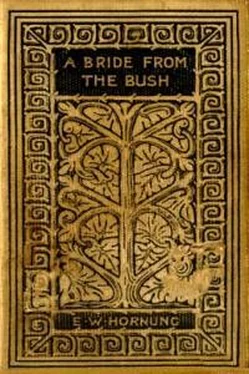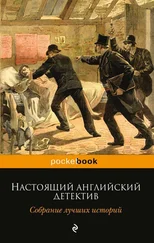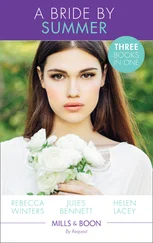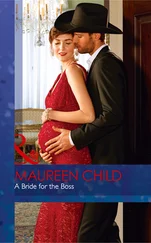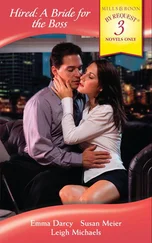To Alfred the anthem presented but one of the many opportunities presented by the Church Service for private reverie on the part of worshippers. Of course his reverie was all about the future and Gladys. And while he mused his arm touched hers, that was the delightful part of it. But on glancing down to see her face again (he had actually not looked upon it for five whole minutes) his musing swiftly ended. Her singular expression arrested his whole attention. And this was the accident that made him listen to the words of the anthem, to see if they could have affected her so strangely.
The Bride's expression was one of powerful yearning. The first sentence Alfred managed to pick out from the words of the anthem was: "Oh, for the wings, for the wings of a dove!" piped in a boy's high treble.
The melting wistfulness in the Bride's liquid eyes seemed to penetrate through that darkening east window into far–away worlds; and the choir–boy sang: "Far away, far away would I rove!"
The solo went on:
In the wilderness build me a nest:
And remain there for ever at rest.
Then, with some repetition which seemed vain to Alfred, the chorus swallowed the solo. And to Alfred's mind the longing in his wife's face had grown definite, acute, and almost terrible.
As they knelt down after the anthem, his eyes met those of his mother. She, too, had seen Gladys's expression. Was it the expression she had referred to on the way to church? Was such an expression a common one with his darling, and concealed only from him? Was it possible that she was secretly longing and pining for the Bush—now—when they were all so happy?
Much later in the evening—long after church—Lady Bligh made an opportunity of speaking again alone with Alfred. "I have been maturing my little plans," she said, smiling.
"As regards Gladys?" he asked.
"Yes; and I have been thinking that really, after all, she need not be so dull during the next few days—"
Alfred interrupted her hastily.
"I also have been thinking; and, do you know, after all, I half fancy that she is a bit dull. I shall be very glad indeed if you have thought of something to liven her up a little."
Lady Bligh regarded him shrewdly; but she was not entirely astonished at this complete change of opinion. She, too, had seen Gladys's longing, far–away expression in church. She, too, remembered it.
"Well, she will be less dull during the next few days than just lately," said Lady Bligh, after a slight pause. "On Tuesday, to begin with, there is this garden–party of ours; a dull thing enough in itself, but the people may amuse Gladys. On Wednesday, there is to be the Opera for her, at last. Thursday and Friday you must boat and drive. But for Saturday—when the Lord Chief is coming—you are all invited to lawn–tennis somewhere; are you not? After this week it is simply embarras ; the two matches at Lord's, and Henley too, one on top of the other; then Wimbledon. Gladys must miss none of these. But can you guess what my happy thought is?"
"You seem to have so many happy thoughts!"
"No; but my little plan for to–morrow?"
"I have no idea. But I think Gladys would be content to do nothing much to–morrow, perhaps."
"Alfred," said Lady Bligh, severely, "Gladys tells me you have never once had her in the Park! How is that?"
"I—well, the fact is, I'm such a duffer in the very swagger part of the town," said poor Alfred; "and I never did know the run of the parks properly."
"Then you shall drive with Gladys and me, and learn. It is getting near the end of the season, when every day makes a difference. So, not to lose another day, we'll drive in to–morrow. This is my happy thought! I think Gladys will like it—though Garrod won't."
"You mean he'll say it's too much for his horses? I should think he'll give warning," said Alfred, encouragingly.
"He may," said Lady Bligh, with a fine fearlessness which can be properly appraised only by ladies who keep, or once kept, their coachman. "He may. I defy him!"
Chapter 11
A Thunder-clap
Fully ten days were wanting before the Eton and Harrow cricket–match, which appears to be pretty generally recognised as the last "turn" in the great variety entertainment of the season; there was plenty of life, and of high life, too, in the town yet; and, what was even more essential to a thorough enjoyment of the Park, the afternoon, as regarded the weather, was for once beyond all praise. Moreover, Royalty was there for at least half an hour; so that the circumstances attendant upon young Mrs. Bligh's first appearance in the ring of fashion were in every way all that could be desired.
It was an "appearance"; for Lady Bligh, though in no sense a woman of fashion, was sufficiently well known to attract attention, which was heightened by the increasing rarity of her appearances in the fashionable world. Even had it been otherwise, the robust, striking beauty of the dark young woman at her side must have awakened interest on its own account. It did, among those who did not know the Blighs by sight. But with most people the questions were: Where had Lady Bligh discovered such a fresh and taking type of prettiness? Was the girl a relative? Was that Alfred Bligh sitting opposite to the ladies, come back from Australia disfigured by a beard? Was she his fiancée—or were they already married? It is intended by no means to imply that the modest and even homely equipage of Lady Bligh became the cynosure of Hyde Park; but it was certainly seen; and few saw it with unawakened curiosity.
One or two persons were able to satisfy to some extent this curiosity, and took a delight in doing so; Lady Lettice Dunlop, for one. The curiosity that Lady Lettice relieved was of a languid and peculiarly well–bred kind. A coronet adorned the barouche in which she rode. She said rather more than she knew, yet not quite all that she did know, and said it with a gentle disdain. But Lady Lettice was stopped by a deprecatory gesture of her mother the Countess before she came to the end—which made her regret having over–elaborated the beginning. The Countess considered the story most coarse, and regretted the almost friendly nature of the bow with which she had just favoured poor Lady Bligh. Yet, as the Lady Lettice was generous enough to fancy, the Colonial creature did seem on her very best behaviour this afternoon. And in her fancy Lady Lettice was nearer the mark than in her facts.
Another person, in an even better position to answer questions concerning the Bride, was Mr. Travers, M.P.—now the newest M.P. but one. He was walking under the trees with his daughter, whom he was boring somewhat with his political "shop"; for he was enough of a new boy still to be full of his nice new lessons. This Miss Travers, however, was no young girl, but a woman of thirty, with a kind, sweet, sympathetic face, and a nature intensely independent. She was best known for her splendid work in Whitechapel, though how splendid that work really was no one knew outside the slums, where her face was her only protection—but a greater one than a cordon of police. But she had also a reputation as a singer, which need not have been confined to a few drawing–rooms in the West, and numberless squalid halls in the East, had she been ambitiously inclined. And this Miss Travers was attracted and charmed by the bold, conspicuous beauty of young Mrs. Bligh; pressed for an introduction; pressed all the harder on hearing some plain truths about the Bride and her Bush manners; and presently had her way.
It was now six o'clock. The crowning period of the afternoon had commenced with the arrival of Royalty a few minutes before the hour. Carriages were drawn up by the rails on either side in long, regular ranks. The trough between presented visions of glossy horseflesh and flashing accoutrements and flawless japan, to say nothing of fine looks and finer dress; visions changeful as those of the shaken kaleidoscope; marvellous, magical visions—no matter how much or how little they owed to the golden glamour of the sinking sun, visions of intrinsic wonder.
Читать дальше
